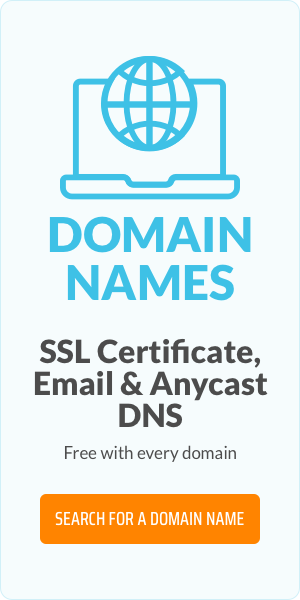The ICANN takeover of DNS: 5 reasons not to panic

The Internet, as we know it, has changed forever. On Saturday, October 8th, the U.S. government ceded control of the directories which enable web browsers to locate our local weather reports, Netflix queues, and Uber accounts.
The U.S. is giving away the Internet?
The Internet domain name system (DNS) was handed over to the California-based non-profit, Internet Corporation for Assigned Names and Numbers (ICANN).
But will many of us even notice the change? Probably not, despite the fact this transfer has become a hot button topic among some of America’s political elites. U.S. conservatives, in particular, have raised a number of concerns which include:
- National security fears.
- Internet takeover by authoritarian governments (and subsequent crack downs on Internet freedom).
- ICANN’s lack of authority and inability to deal with Internet-related abuses.
Most recently, and perhaps most famously, Senator Ted Cruz expressed concerns that the U.S was on the verge of “giving away the Internet”, a claim transition supporters have rebuked, pointing out that the Internet never was America’s to give away.
Supporters of the transition, with include numerous U.S.-based corporations like Amazon, Google, and Twitter, have defended the transition, arguing the shift will:
- Support innovation.
- Grant equal footing to international stakeholders.
- Resolve international disputes over Internet ownership.
In addition to pointing out that the Internet has never been the exclusive property of the United States, they argue that it is exactly the U.S.’s informal governance of DNS, its lack of centralised power, that has allowed the Internet to thrive.
So, is Obama really giving away the Internet? Will other countries determine our ability to access a free and open Internet? The short answer is, no, not exactly.
To further clarify what this transition means, here are 5 important points you need to know:
1. The average user is not likely to even notice the transition.
Despite significant changes to policy, the Internet will continue to run as normal with no detectable differences. Come Saturday morning, people will be able to update their Netflix queue and play Candy Crush as usual.
2. This plan has been in the works for a while.
In fact, in 2014, a transition plan was put in place to end the formal agreement between the U.S. Chamber of Commerce and ICANN. But, in reality, the U.S. has never wanted a single government to maintain strict control. As far back as 1997, the U.S. Department of Commerce recognised the need to allow international stakeholders to participate in internet coordination, and that is had become increasingly inappropriate for the U.S. to direct how the Internet works.
3. ICANN can – and - will be held accountable.
It’s not as if ICANN can do whatever it wants. Since 2014, members of the Internet community have worked together to create oversight measures which will ensure ICANN operates transparently and in the best interest of all stakeholders, stakeholders made up of governmental, technical, and industry committees, internet users, and other telecommunications experts. Moreover, ICANN can, in effect, be fired by its stakeholders at any time.
4. ICANN has no power to dictate what we see on the web.
ICANN has no authority over internet content or government policies. It cannot dictate what countries like China or Russia allow to appear on the web nor can it shut down websites or make it easier for sites to launch. It will simply maintain technical standards. And, here, it’s worth noting that supporters of the transition have pointed out the U.S. has, similarly, had no authority to stop any government from censoring Internet content within its own borders. The transition will change nothing in this regard.
5. ICANN has no authority to police how people behave online.
Anyone can register, for example, www.starbucks.coffee, through an ICANN-approved process. However, ICANN has no power to monitor whether or not that website is, in fact, selling Starbucks coffee or an imitation. Moreover, it doesn’t want to. Allen Grogan, ICANN’s Chief Contract Compliance Officer, has said that content policing is outside the scope of ICANN’s duties, that the organisation’s only mission is simply to “ensure the stable and secure operation of the Internet’s unique identifiers.” In other words, ICANN’s jurisdiction begins and ends with maintaining domains and addresses for Internet users.
Rest assured, after Saturday the Internet will operate as it always has. The biggest change is that the U.S.’s Department of Commerce will no longer be involved in how it operates. And despite the fact that ICANN’s model may not be perfect, a criticism often levelled at the organisation, for the time being all outward signs suggest it will work to make the Internet an equal playing field for all without taking on any authoritative powers outside of its scope.
Upgrade your business reputation with a branded domain name
Related articles:
